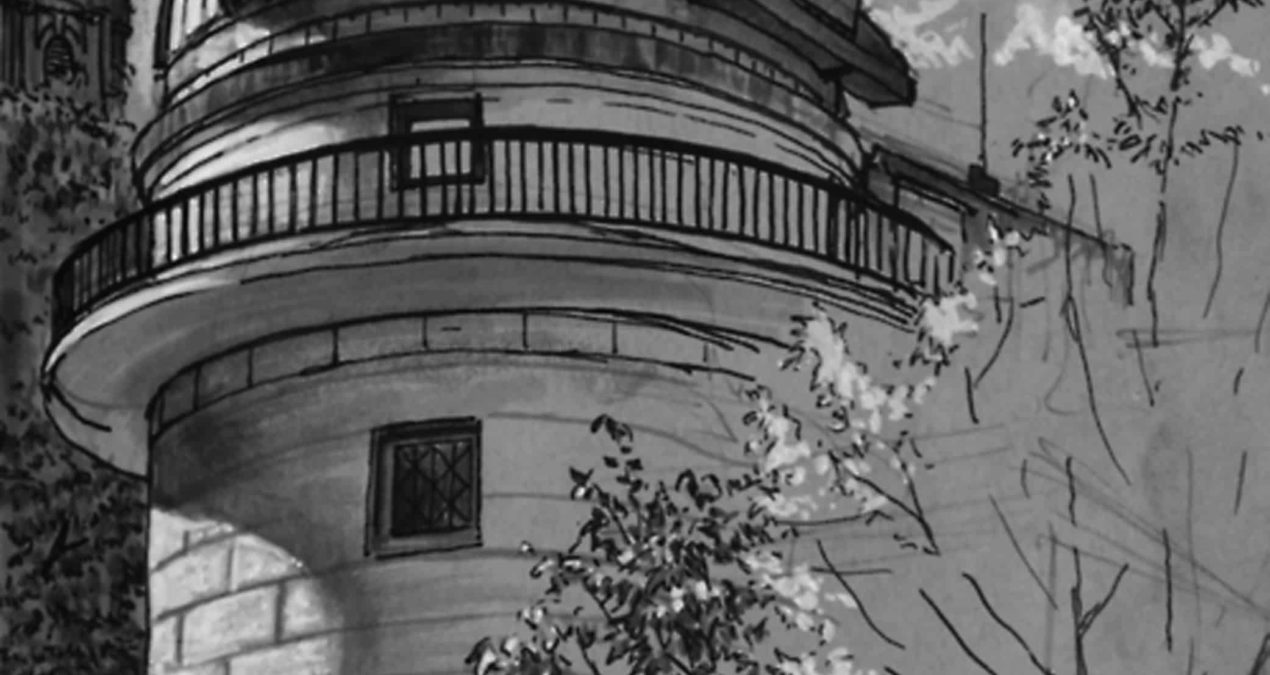By Payton Hoang
Assistant Photo Editor
On the Hill throughout last week, a middle-aged man whose shirt pockets overflowed with bunches of drawing tools, diligently sketched from his observation scenes around Denison’s campus.
Visiting artist Don Colley was sent on a road-trip around the United States, doing drawing demos, leading workshops, and distributing samples from Faber-Castell, a company specializing in professional drawing supplies.
Colley said he chose Denison as a destination in his road trip because he was attracted to “the idea of a decentralized community in which its student body is so diverse that everybody is open about bringing their ideas to the table and engage in listening to those by others.”
Colley was very open to talking to students. He frequently either held individual critiques with art students or simply initiated a random conversation with those passing by as he was drawing on-location.
Not only was Colley a pensive artist, but he also enjoyed discussing his work, obviously passionate about his job.
“I love living visually and intellectually with my heart open to experience a range of people and activities. By practicing drawing in a low-key manner, I don’t become the target of intention, thus make people comfortable and behave as they are. This is what they call the empathy in creative fields,” Colley said.
Throughout the course of his three days on the Hill, Colley constantly drew in a variety of settings such as Mitchell Athletic Center, Associate Professor Chuck Sokolik’s chemistry class, Swasey Observatory, and many more.
Besides wandering around campus to draw, he also led a workshop in the Intro to Drawing class, and wrapped up his visit to Denison with a talk in the library Wednesday afternoon.
“I think it’s very important for any art program to bring in any artists from all around the world to reveal multiple ways to be an artist, to engage in the world and how you express it, “said Assistant Professor of Studio Art Ron Abram. “The diversity of expression will add to our own sense of empowering what’s possible here.”

